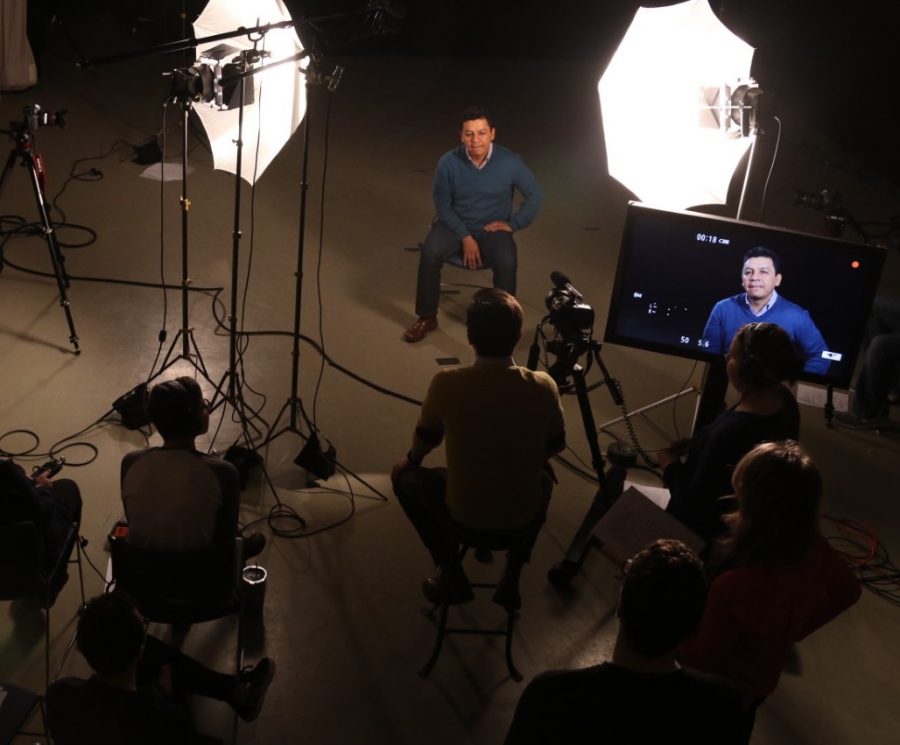International affairs, digital media and journalism students have been working together this semester to bring globally renowned social activists to speak on campus as part of the Marquette Democracy Project. An excellent collaboration of academic expertise and interdisciplinary learning with the mission of spreading social awareness, the Democracy Project is a near perfect example of how a Marquette undergraduate career should culminate.
New to campus this year, the project allows students to engage in global activism and promote the Jesuit ideal of social justice. The focus of the project is student collaboration. The international affairs capstone researches and writes reports on the speakers prior to their visit, and the students in the international reporting, video production and digital media capstone courses conduct and record interviews when they arrive.
This project allows communication students to work within a certain political and global context they otherwise may not have experienced, and international affairs majors learn the technical aspects of the interviewing and reporting processes.
The Democracy Project provides a new and valuable academic experience to students who probably take few courses outside their specific majors. By working with people in other areas of study, these students get practical, hands-on experience before they enter the real world. They gain new critical thinking and problem-solving skills and an increased appreciation for the knowledge of their fellow students.
The advantages of the Democracy Project go far beyond just this group of students. The entire Marquette community benefits when these social activists come to campus to share their experiences.
Of the four speakers the Democracy Project plans to bring to Marquette this semester, Fray Tomas, a Franciscan friar who founded a migrant shelter in Mexico, and Clare Byarugaba, a civil rights activist from Uganda, were the first two. Hundreds of students, faculty and other community members attended these events.
With the goal of educating all of campus on social issues, the Democracy Project epitomizes Jesuit education. The rights of those who are suffering all over the world, from migrants in Central America to the LGBTQ community in Uganda, are at the forefront of the discussion, and hundreds of people gain awareness of these issues.
The four pillars of a Marquette education — service, leadership, excellence and faith — are all highlighted in this project. Students take an active leadership role in interacting with the activists and organizing the events, while bringing real issues into discussion beyond the classroom. The well-rounded, faith-based education on which Marquette prides itself manifests for the students participating in this project. Students put to use a skill set they have molded for up to four years, while working with other students and serving the greater community. Other courses would be wise to note these benefits and use the Democracy Project as a model for future projects.


